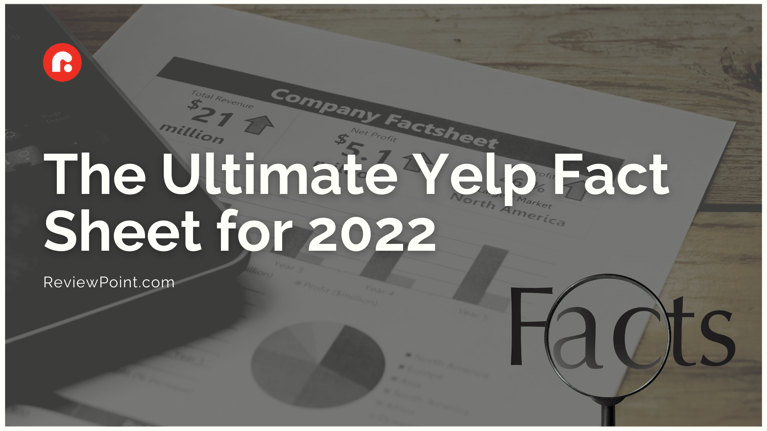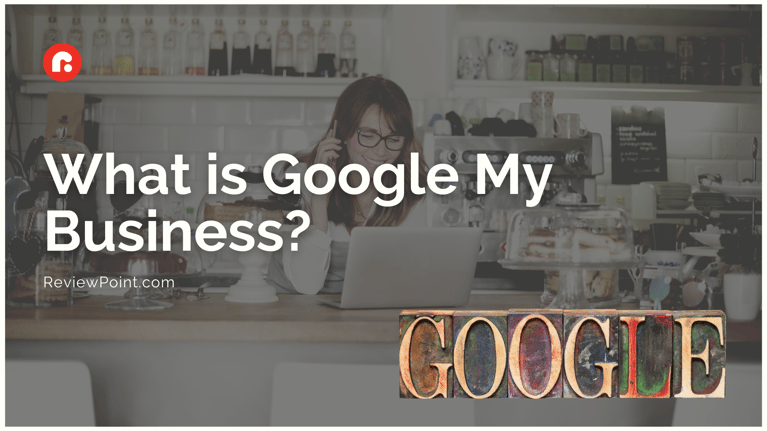
Google and Yelp are the two largest sources of local business reviews. If you’re wondering how to get more customer reviews, you’re probably wondering which is more important and will have the most significant impact on your business. But before you decide which site matters most, you need to know how important reviews are overall.
Why Customer Reviews Are Important
Customer reviews influence potential customers and help build your credibility. They also play a role in the rise or fall of your website's ranking in search results, which is a good predictor of how potential customers will find you.
Some statistics to keep in mind:
- 87% of consumers use reviews to search for local services
- 67% of consumers are influenced by online reviews
- 92% of consumers hesitate to purchase from businesses with no reviews
Should You Rely on Google or Yelp?
They both get a lot of traffic. In 2020, Yelp had nearly 200 million unique visitors per month, while Google's popularity rose with almost 4 billion unique visitors per day—46% of that traffic seeking local business information. As a small business, you want to invest in a platform that will give you the most bang for your buck.
Are Yelp reviews good for my small business?
Yelp has some concerns in terms of ROI for small businesses. Yelp's questionable business practices, particularly in dealing with small businesses, is well documented. The 2019 documentary Billion Dollar Bully showcased multiple accounts of Yelp pressuring small businesses to advertise on their platform, with positive reviews seemingly held hostage for compliance.
The Better Business Bureau has also weighed in on the issue, indicating that due to a high volume of complaints, they conducted a review of them in 2019. The BBB reports:
"(Yelp) has a pattern of complaints. Businesses state that when speaking to sales representatives, they are sold ad campaigns for one price (and are invoiced at different rates).
Complaints also state, positive reviews are filtered off profiles and are no longer visible. In some cases, businesses state that after refusing to purchase advertising, positive reviews are (impacted)."
In terms of ROI for your business, it is important to have this context to weigh the time investment against the potential outcomes. You may find that you invest many hours into encouraging customer reviews, only to be caught out in having those reviews go missing.
Yelp's policy of removing reviews
Yelp states that they remove reviews based on the criteria in their algorithm. When a review is marked "not currently recommended", the review goes to the bottom of the review pile, effectively making it so no one will ever see it—kind of like being on page 3 of Google.
So what ads are flagged by Yelp? Their algorithm looks for:
- Reviewer activity. Does it appear an account was created for a single review (i.e., a fake posting)?
- Does the reviewer's IP address make sense? Are they reasonably local to the business's location, or is this a "reviewer for hire"?
- Does the review meet Yelp's quality standards of adding value? Or is a customer merely ranting.
Are Google reviews better to reach your customers?
Many marketing experts encourage small businesses to focus their time and money on Google reviews due to the increased visibility (due to higher traffic) and their stance on not removing reviews.
Top reasons for focusing on Google reviews:
- Google does not suppress reviews.
- Google enables visual data from your business profile. Pictures and map views come up on Google searches, whereas Yelp results are basic data.
- Google enables customers to message businesses directly from the Google listing of your business.
- More consumers (by far) use Google to search. And Google uses review data to provide relevant search results. How many reviews your business has, keywords and city mentions, and other factors are all used by Google's algorithm to find the most relevant results for "googlers".
- Google reviews help with Google Map rankings. For example, when you search something like "car repair shop near me", both Google Maps and Google Search are used to retrieve results.
Can you ask customers for a review?
Yelp and Google have fundamental differences in a business' involvement in seeking reviews. Yelp's policy is that you should never request reviews. They believe that businesses will only ask for reviews from customers who love them, thereby skewing results.
However, Google encourages businesses to request reviews, even providing a way for them to solicit reviews via custom links easily.
Final Consensus?
Although many consumers use Yelp, you will have better results focusing on your Google reviews. Google receives way more traffic, supports the customer review process, and has a far better reputation among local businesses than Yelp.
We Can Help!
We help businesses grow by giving them the tools to manage their reviews, showcase positive customer experiences, and proactively address issues and negative customer experiences.
ReviewPoint's reputation management platform lets you take action now. Reach out to our team today!
Additional Resources:
Complete Guide to Customer Reviews
How to Respond to Negative Reviews in 6 Easy Steps
What is Reputation and why is it Necessary to Grow Your Business





